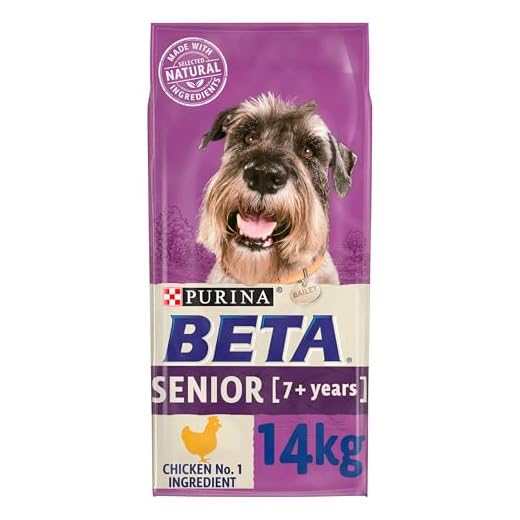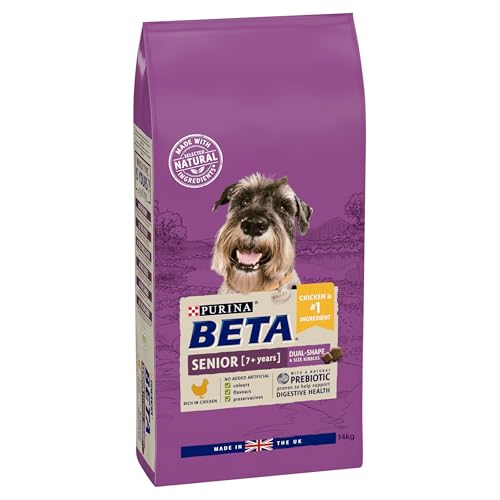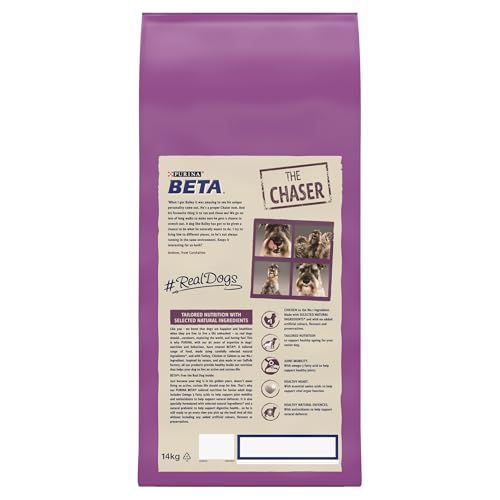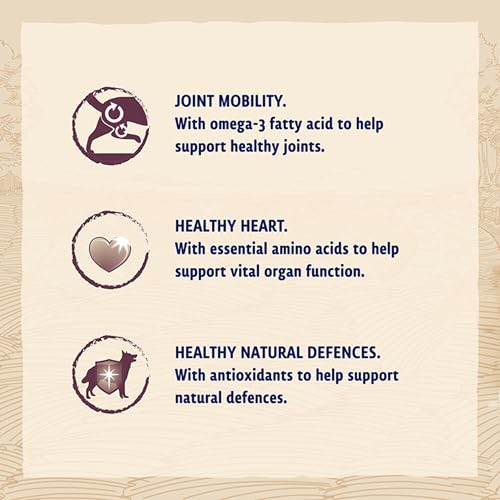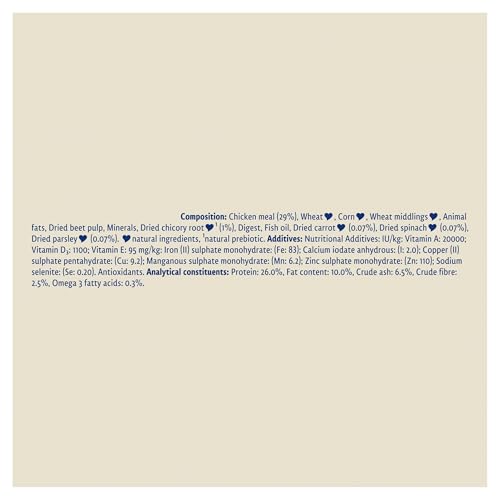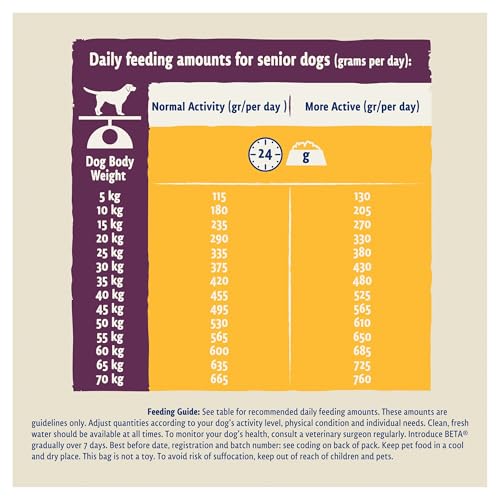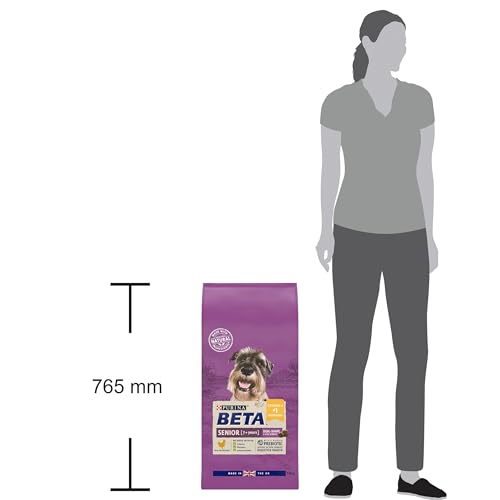








As my beloved dog began to age, I noticed a gradual change in her energy levels and a noticeable increase in her weight. It became clear that her nutritional needs were evolving, and her diet needed to reflect those changes. Navigating the world of dog food can be overwhelming, especially when seeking the best options for a senior dog with specific weight loss goals. After extensive research and consultations with veterinarians, I discovered the key factors to consider when choosing the best dog food for senior dogs aiming to lose weight.
Understanding the unique dietary needs of senior dogs is crucial. Older dogs often require fewer calories due to a decrease in their activity levels and a slower metabolism. However, it’s not just about cutting calories; it’s about ensuring they receive the right balance of nutrients to support their overall health. Protein content, fibre, and the quality of ingredients all play a significant role in maintaining a healthy weight while supporting joint health, digestive function, and immune system strength.
In this article, I will share my findings on the best dog food options tailored for senior dogs looking to shed some pounds. From specific brands to essential ingredients, I’ll provide insights based on personal experience and expert recommendations. Whether your furry friend needs to lose a few pounds or embark on a more significant weight loss journey, these tips and product suggestions will help you make informed decisions to enhance your dog’s well-being and longevity.
Why Senior Dogs Require Special Weight Management
As our beloved dogs age, their nutritional needs change significantly. Just like in humans, a senior dog’s metabolism slows down, and they tend to become less active. This means they require fewer calories, but their diet must still provide all the essential nutrients to keep them healthy and happy. If not managed properly, weight gain can lead to a host of health problems, exacerbating age-related issues.
Excess weight in older dogs can put unnecessary strain on their joints, which are often already suffering from conditions like arthritis. This added pressure can make movement painful, further reducing their activity levels and creating a vicious cycle of weight gain and decreased mobility. It’s crucial to address these issues through a carefully planned diet that promotes weight loss without compromising their nutritional needs.
Key Considerations for Senior Dog Weight Management
When managing your senior dog’s weight, it’s important to focus on several factors that contribute to their overall well-being. Here are some key considerations:
- Calorie Control: Reducing calorie intake while ensuring the diet remains balanced is essential. Senior dog foods often contain fewer calories and more fibre to help your pet feel full without overeating.
- Joint Health: Ingredients that support joint health, such as glucosamine and chondroitin, are vital. These help mitigate the effects of arthritis and other joint-related issues.
- Protein Levels: Maintaining adequate protein levels is crucial for preserving muscle mass. Lean proteins can help support muscle maintenance without contributing to weight gain.
- Digestive Support: Older dogs may have more sensitive digestive systems. Foods with prebiotics and probiotics can promote a healthy gut, improving nutrient absorption and overall health.
- Regular Monitoring: Regular weight checks and adjustments to their diet can help ensure your dog remains on the right track. Working closely with your vet can provide valuable insights and adjustments to their weight management plan.
By paying attention to these aspects, you can help your senior dog achieve and maintain a healthy weight, enhancing their quality of life and ensuring they stay active and comfortable in their golden years.
Key Ingredients to Look for in Food for Senior Dogs
As our furry friends age, their dietary needs change significantly. Ensuring they get the right nutrients is crucial for maintaining their health and vitality. When selecting food for senior dogs, it’s important to focus on specific ingredients that cater to their evolving needs, especially if they need to shed some extra pounds.
One of the primary considerations for senior dog food is the balance of protein, fat, and carbohydrates. Older dogs benefit from high-quality protein sources that help maintain muscle mass without adding unnecessary calories. Additionally, the right blend of fats and fibres can aid in digestion and weight management, making these elements essential in their diet.
Essential Ingredients for Senior Dog Nutrition
To ensure your senior dog is getting the most out of their diet, here are some key ingredients to look for:
- Lean Proteins: Chicken, turkey, and fish provide high-quality protein that helps preserve muscle mass while keeping fat levels low. These proteins are easier to digest and offer essential amino acids.
- Healthy Fats: Ingredients like salmon oil or flaxseed provide omega-3 and omega-6 fatty acids. These are crucial for maintaining a healthy coat, supporting cognitive function, and reducing inflammation.
- Fibre-Rich Vegetables: Ingredients such as sweet potatoes, pumpkin, and carrots are excellent sources of fibre. They help promote healthy digestion, regulate blood sugar levels, and keep your dog feeling full longer.
- Complex Carbohydrates: Oats, barley, and brown rice are better choices than simple carbs. They provide sustained energy without causing spikes in blood sugar levels, which is especially important for senior dogs.
- Antioxidant-Rich Fruits: Blueberries, cranberries, and apples are packed with antioxidants that support immune health and protect against cellular damage.
- Glucosamine and Chondroitin: These supplements are essential for joint health. They help maintain cartilage and alleviate symptoms of arthritis, a common issue in older dogs.
When evaluating senior dog food, it’s crucial to read the ingredient list carefully and opt for products that prioritise these beneficial components. By doing so, you can ensure your ageing companion stays healthy, active, and happy in their golden years.
Leading Brands of Dog Food for Senior Canines
As our furry companions age, their nutritional requirements change significantly. Finding the right dog food for senior dogs can make a world of difference in their health and vitality. With countless options on the market, it can be overwhelming to determine which brands offer the best support for our ageing pets.
Through my research and personal experience, I’ve identified several brands that stand out in providing balanced, nutritious, and palatable options for senior dogs. These brands are renowned for their quality ingredients and specific formulations designed to meet the needs of older dogs.
Recommended Brands for Senior Dog Nutrition
One highly recommended brand is Hill’s Science Diet. Known for its commitment to scientific research, Hill’s Science Diet offers a senior-specific formula that includes controlled levels of sodium and phosphorus to support heart and kidney health. Their recipes also feature a blend of omega-6 fatty acids and vitamin E to promote a shiny coat and healthy skin.
Royal Canin is another brand that excels in catering to senior dogs. Their aging formulas are tailored to the size and breed of the dog, ensuring that each pet gets the precise nutrients it needs. Royal Canin’s senior dog food includes antioxidants to support cell health and prebiotics for a healthy digestive system.
Blue Buffalo offers a line called Blue Buffalo Life Protection Formula, which includes senior dog options. These recipes are crafted with real meat as the first ingredient, alongside whole grains, garden vegetables, and fruit. The formula provides glucosamine and chondroitin to help maintain joint health, which is crucial for older dogs.
For those seeking grain-free options, Wellness CORE provides high-protein, nutrient-dense formulas that are free from grains, corn, soy, and artificial additives. Their senior dog food is fortified with antioxidants, probiotics, vitamins, and minerals, supporting overall wellness and a strong immune system.
- Hill’s Science Diet: Controlled sodium and phosphorus, omega-6 fatty acids, and vitamin E.
- Royal Canin: Tailored formulas for size and breed, antioxidants, and prebiotics.
- Blue Buffalo: Real meat, whole grains, glucosamine, and chondroitin.
- Wellness CORE: High-protein, grain-free, with added antioxidants and probiotics.
Choosing the right food for your senior dog can greatly enhance their quality of life. Each of these brands offers unique benefits tailored to the specific needs of ageing dogs, ensuring that your pet remains healthy, active, and happy well into their golden years.
Homemade Dog Food Recipes for Weight Loss
As my senior dog began to age, I noticed she started to put on extra weight. Concerned about her health, I decided to take matters into my own hands and prepare homemade meals that would help her shed those extra pounds. Creating balanced, nutritious meals at home not only ensured she was eating the best ingredients, but it also allowed me to tailor her diet specifically for weight loss.
Switching to homemade dog food was a game-changer. It gave me control over portion sizes and the quality of food my dog consumed. This journey taught me that preparing meals at home can be both simple and effective in managing a dog’s weight. Here are some of the recipes I found particularly effective for helping my senior dog lose weight while maintaining her energy and health.
Nutritious and Low-Calorie Recipes
- Chicken and Vegetables Delight: Boil a skinless, boneless chicken breast and mix it with steamed green beans, carrots, and peas. Add a small amount of brown rice for fibre.
- Turkey and Pumpkin Stew: Cook ground turkey and mix it with canned pumpkin (without additives), chopped spinach, and a touch of olive oil. This recipe is high in fibre and low in calories.
- Fish and Sweet Potato Mash: Bake or steam a white fish fillet and combine it with mashed sweet potatoes and steamed broccoli. This meal is rich in omega-3 fatty acids and antioxidants.
For these recipes, I always ensure to use lean meats and plenty of vegetables, which are crucial for a low-calorie diet. Avoiding high-fat ingredients and fillers is essential. Additionally, I often consult my vet to ensure the nutritional balance is appropriate for my dog’s age and health condition.
Making homemade dog food for weight loss requires a bit of effort, but seeing my dog happy and healthier is worth every minute spent in the kitchen. It’s a rewarding way to ensure she gets the best care and nutrition possible.
How to Transition Your Senior Dog to a New Diet
Switching my senior dog to a new diet was a crucial step in managing his weight and improving his overall health. The process needed to be handled carefully to avoid digestive issues and ensure he accepted the new food without stress.
Here, I want to share my experience and some key steps that helped make the transition smooth and effective for my furry friend.
Steps to Transition Your Senior Dog’s Diet
The key to a successful dietary change for a senior dog is gradual integration of the new food into their existing diet. This process helps their digestive system adjust without causing discomfort or rejection of the new food.
- Start Slowly: Begin by mixing a small amount of the new food with your dog’s current food. I started with a ratio of about 25% new food to 75% old food.
- Monitor Closely: Over the next few days, I carefully observed my dog for any signs of digestive upset such as diarrhoea or vomiting. If all was well, I gradually increased the proportion of the new food.
- Gradual Increase: Each few days, I adjusted the ratio to include more of the new food. For example, after three days, I increased to 50% new food and 50% old food.
- Complete Transition: After about a week to ten days, the diet consisted entirely of the new food. This gradual process minimised stress on my dog’s digestive system and made the transition smooth.
Throughout this period, I also ensured that my dog was comfortable and happy with the new diet. Providing consistent feeding times and a calm environment helped ease the transition.
Additional Tips:
- Hydration: Ensure your dog always has access to fresh water, especially during dietary changes.
- Treats and Supplements: I used healthy, low-calorie treats and supplements approved by our vet to support the dietary transition and weight management.
- Consult Your Vet: Before starting the transition, it’s important to consult with your veterinarian to choose the best diet for your dog’s specific needs and health conditions.
Transitioning your senior dog to a new diet requires patience and careful monitoring. By following these steps, I was able to successfully switch my dog to a healthier diet that supported his weight loss and overall well-being.
Additional Tips for Helping Senior Dogs Lose Weight
Helping your senior dog lose weight requires a comprehensive approach that goes beyond simply choosing the right food. A combination of proper diet, regular exercise, and attentive care can make a significant difference in your dog’s health and well-being.
In this section, we will provide some additional tips to support your senior dog’s weight loss journey. These tips will help you create a balanced and sustainable plan to keep your furry friend healthy and active.
Practical Tips for Weight Management
- Regular Vet Check-Ups: Ensure your senior dog receives regular veterinary check-ups to monitor their health and progress. Your vet can provide personalised advice and make adjustments to their diet and exercise plan as needed.
- Consistent Exercise: Engage your dog in regular, low-impact exercises such as walking or swimming. These activities help burn calories and maintain muscle mass without putting too much strain on their joints.
- Portion Control: Measure your dog’s food portions accurately to avoid overfeeding. Using a kitchen scale or measuring cups can help ensure you’re giving the right amount of food.
- Healthy Treats: Choose low-calorie, nutritious treats or use small portions of their regular food as rewards. Avoid high-calorie, fatty treats that can hinder their weight loss progress.
- Monitor Progress: Keep track of your dog’s weight and body condition regularly. This will help you see the results of your efforts and stay motivated.
- Provide Mental Stimulation: Incorporate puzzle toys and interactive feeders to keep your dog mentally engaged and prevent boredom, which can lead to overeating.
- Hydration: Ensure your dog has access to fresh water at all times. Proper hydration supports metabolism and overall health.
By following these tips and maintaining a balanced approach to diet and exercise, you can help your senior dog achieve a healthy weight. Consistency, patience, and regular monitoring are key components to ensure your dog’s weight loss journey is safe and effective. Remember, always consult your vet before making any significant changes to your dog’s diet or exercise routine.
In summary, a combination of the right food, regular vet visits, controlled portions, healthy treats, consistent exercise, and mental stimulation will collectively contribute to your senior dog’s weight loss success. Your dedication and care will help your dog live a happier, healthier life.
Best Dog Food For Senior Dogs To Lose Weight
Features
| Part Number | 12231689 |
| Model | 12531980 |
| Color | transparent |
| Release Date | 2014-05-23T00:00:01Z |
| Size | 1 count (Pack of 1) |
Features
| Part Number | 8710255174761 |
| Model | 8710255174761 |
| Size | 12 kg (Pack of 1) |
| Language | English |
Features
| Is Adult Product | |
| Release Date | 2025-05-17T00:00:01Z |
| Language | English |
| Number Of Pages | 213 |
| Publication Date | 2025-05-17T00:00:01Z |
Features
| Is Adult Product | |
| Release Date | 2025-04-27T00:00:01Z |
| Language | English |
| Number Of Pages | 203 |
| Publication Date | 2025-04-27T00:00:01Z |
Features
| Size | 400 g (Pack of 1) |
Features
| Part Number | 29046 |
| Model | 02SKFTLS |
| Warranty | 1 year manufacturer |
| Size | 1 count (Pack of 1) |
| Language | English |
| Price history for Skinner’s Light & Senior Dog Food 15kg | |
|---|---|
|
Latest updates:
|
|
Q&A:
What is the best dog food for senior dogs to help them lose weight?
The best dog food for senior dogs aiming to lose weight is one that is low in calories but high in essential nutrients. Look for options specifically formulated for weight management, such as Hill’s Science Diet Perfect Weight or Royal Canin Weight Care. These brands offer balanced nutrition while helping your dog maintain a healthy weight. Additionally, always consult with your veterinarian to tailor the diet to your dog’s specific needs.
How can I ensure my senior dog loses weight safely with the right dog food?
To ensure your senior dog loses weight safely, choose a dog food designed for weight loss that provides balanced nutrition. Measure portions carefully according to the guidelines on the food packaging or your vet’s recommendations. Incorporate regular, low-impact exercise suitable for your dog’s age and health condition. Monitoring progress with regular vet check-ups is also crucial to adjust the diet and exercise plan as needed.

